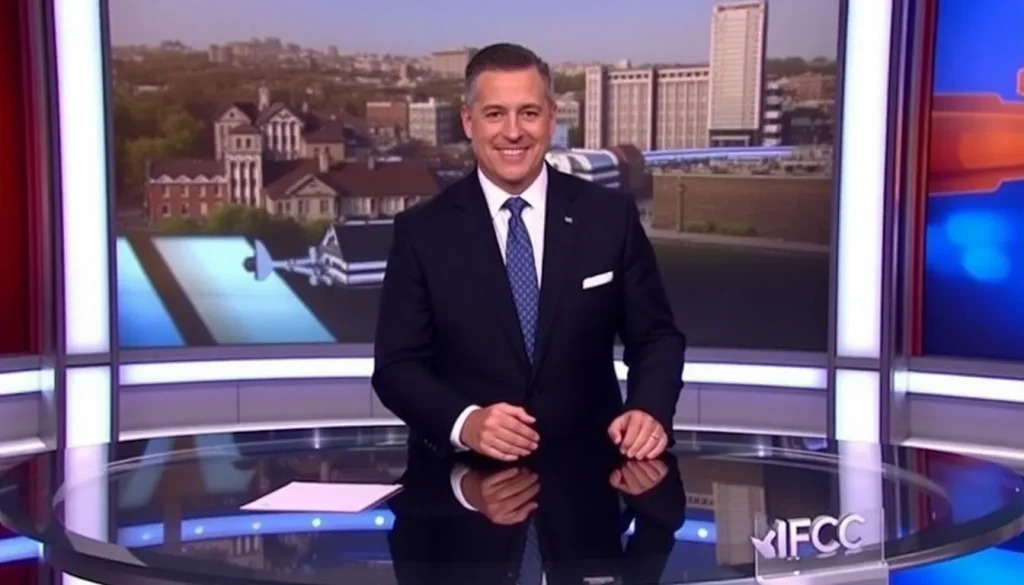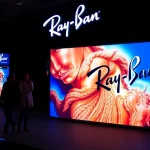FCC Chair Threatens ABC's The View After Jimmy Kimmel Suspension

In recent months, the landscape of American broadcasting has become increasingly tumultuous, with significant implications for media freedom and regulatory oversight. The actions of Federal Communications Commission (FCC) Chairman Brendan Carr, particularly regarding the popular late-night show hosted by Jimmy Kimmel, have sparked a heated debate about censorship, media bias, and the First Amendment. As Carr extends his scrutiny to other programs, including ABC's The View and NBC's late-night hosts, the implications of his stance are profound.
- The implications of the FCC's stance on broadcasting
- Bona fide news exemption: Understanding its significance
- Carr's allegations: A closer look at claims against NBC
- Political backlash: Democrats respond to Carr's actions
- Carr's call to broadcasters: Compliance or resistance?
- Conclusion: The future of broadcasting under regulatory scrutiny
The implications of the FCC's stance on broadcasting
The FCC's role in regulating broadcasters is rooted in ensuring fair and equitable access to the airwaves. However, under Carr's leadership, the agency is increasingly seen as a tool for political influence rather than a neutral arbiter. Carr's recent actions raise questions about the future of media regulation and the potential chilling effect on free speech.
After pressuring ABC to suspend Jimmy Kimmel, Carr's focus has now shifted to The View and late-night shows hosted by Seth Meyers and Jimmy Fallon. This scrutiny is underpinned by the FCC's Equal Opportunities Rule, which mandates that broadcasters provide equal airtime to opposing political candidates. The rule is crucial for maintaining a level playing field during election cycles, but Carr's interpretation could redefine what qualifies as a "bona fide news program."
Bona fide news exemption: Understanding its significance
The bona fide news exemption allows certain programs to bypass the Equal Opportunities Rule. This exemption has historically applied to traditional news broadcasts, but Carr suggests that the FCC should reevaluate whether shows like The View and the aforementioned late-night programs meet this standard. In his view, the distinction between news and entertainment is becoming blurred, particularly in politically charged environments.
Carr elaborated on this during an interview, stating:
"There's an exception to that rule called the bona fide news exception. Over the years, the FCC has developed a body of case law suggesting that most of these late-night shows, other than SNL, are bona fide news programs."
As the FCC considers these classifications, it is vital to understand how this could impact programming across the industry. The implications are significant:
- Potential for increased censorship of politically charged content.
- Reevaluation of what constitutes newsworthy programming.
- Pressure on broadcasters to align with the political leanings of regulatory bodies.
Carr's allegations: A closer look at claims against NBC
In November 2024, Carr alleged that NBC's decision to feature Kamala Harris on Saturday Night Live was an attempt to circumvent the FCC's Equal Time Rule. He claimed that such actions presented a clear bias, although NBC later provided Trump with two free 60-second messages to comply with the rule.
Carr's focus on specific incidents raises concerns about selective enforcement. Notably, he did not provide concrete examples of violations from The View or late-night shows. This lack of specificity raises questions about the motivations behind his regulatory approach.
Additionally, the controversy surrounding Kimmel's show erupted following a monologue that addressed political issues, prompting accusations of misleading viewers. Carr's remarks on the matter indicate a desire to hold broadcasters accountable, but they also hint at a broader agenda:
- Increased scrutiny of content that diverges from mainstream political narratives.
- Pressure on media companies to self-censor to avoid regulatory backlash.
- Potential chilling effects on satire and commentary in late-night shows.
Political backlash: Democrats respond to Carr's actions
Democratic lawmakers have voiced their concerns over Carr's actions, framing them as an overreach of authority. Anna Gomez, the only Democrat on the Republican-majority FCC, accused Carr of pressuring broadcasters to align with ideological demands:
"It is not simply unacceptable for the FCC chairman to threaten a media organization because he does not like the content of its programming—it violates the First Amendment that you claim to champion."
This conflict highlights the tension between regulatory bodies and media companies, particularly when it comes to the influence of political ideologies on regulatory enforcement. Democrats have called for investigations into Carr's conduct, citing a potential abuse of power aimed at stifling dissenting voices in media.
Carr's call to broadcasters: Compliance or resistance?
Carr has made it clear that his focus is primarily on licensed broadcasters, asserting that they have public-interest obligations to fulfill. His comments suggest a willingness to enforce regulations that could redefine the landscape of broadcasting:
- Pressure on broadcasters to align content with regulatory expectations.
- Threats to revoke licenses for non-compliance with FCC standards.
- A call for broadcasters to reject content that does not serve local communities.
Carr's rhetoric positions him as a defender of public interest, but it also raises the specter of censorship. He has challenged broadcasters to either accept accountability or relinquish their licenses, further complicating the relationship between media providers and regulatory authorities.
Conclusion: The future of broadcasting under regulatory scrutiny
The ongoing saga between the FCC and major broadcasters illustrates the delicate balance between regulation and free speech. As Carr continues to exert pressure on networks, the implications for media diversity and expression are profound. The broadcasting industry is at a crossroads, facing not only the challenge of maintaining editorial independence but also the threat of regulatory overreach. As stakeholders navigate this complex landscape, the fundamental principles of media freedom and democratic discourse hang in the balance.




Leave a Reply